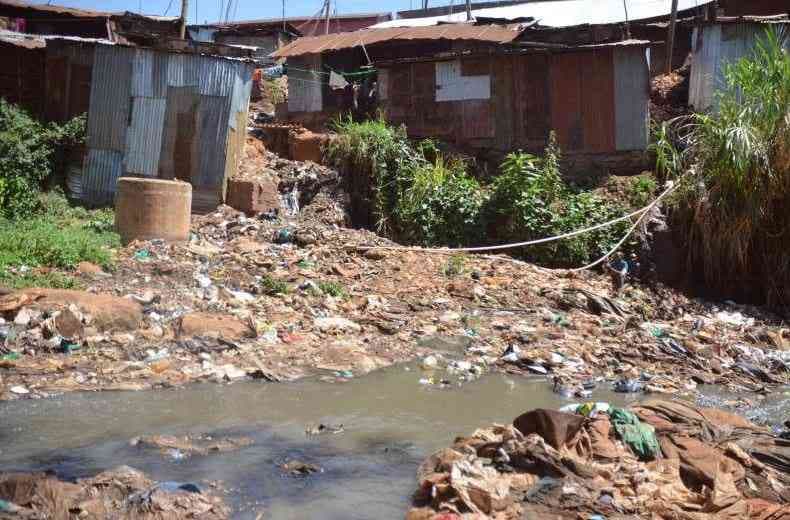We're loading the full news article for you. This includes the article content, images, author information, and related articles.
A landmark infrastructure project in Nairobi's Mukuru informal settlement promises to connect thousands to a modern sewer system, tackling a decades-old public health crisis and offering a potential blueprint for urban sanitation across Kenya.

NAIROBI, KENYA – For decades, the term 'flying toilet'—a grim reference to human waste disposed of in plastic bags and thrown onto rooftops or into open channels—has been a symbol of the severe sanitation crisis in Nairobi's informal settlements. On Thursday, October 30, 2025, a significant stride was made to eradicate this practice in Mukuru, one of the city's largest slums. The Nairobi City Water and Sewerage Company (NCWSC) is actively rolling out a simplified sewer system, a technological and logistical breakthrough designed to navigate the dense, unplanned terrain of the settlement and bring dignified sanitation to its residents.
Mukuru, a sprawling area home to over 400,000 people, has long grappled with inadequate access to basic services. Before the current interventions, sanitation coverage was dangerously low, with thousands of families sharing a few pit latrines, which are often poorly maintained and unsafe, particularly for women and children at night. This lack of proper sanitation has fueled recurrent outbreaks of waterborne diseases like cholera and typhoid, placing a continuous strain on the community's health and the city's medical resources. Residents often paid exorbitant fees to cartels for services like water and access to pay-per-use toilets, sometimes spending up to KES 1,200 per month for a family, a significant burden on low-income households.
The core of the new initiative is the 'simplified sewer system'. Unlike conventional sewerage, which requires deep, wide trenches and large pipes, this model uses smaller, more flexible pipes laid at shallower depths, often along footpaths and plot boundaries. According to Martin Nang'ole, the Acting Managing Director of NCWSC, this technology is significantly cheaper and faster to install, making it ideal for the unique challenges of Mukuru. The capital cost is estimated at roughly KES 20,000 per household, a fraction of the KES 195,000 it would cost for a conventional system in a similar environment. This cost-effectiveness is crucial for the project's potential replication in other informal settlements like Kibera, Mathare, and Kawangware.
As of late October 2025, the NCWSC reported that it had laid approximately 3.9 kilometres of sewer lines in the Mukuru kwa Reuben area, connecting 200 households and benefiting over 80,000 residents. The total project cost is estimated to be between KES 40 million and KES 50 million upon completion. This ambitious undertaking is a collaborative effort involving the Nairobi County Government, NCWSC, Athi Water Works Development Agency (AWWDA), and Water and Sanitation for the Urban Poor (WSUP). The project is a key component of the Mukuru Special Planning Area (SPA), a government designation initiated in August 2017 to facilitate integrated and inclusive development for the settlement.
The impact on the ground is already tangible. In areas connected to the new system, NCWSC reports that there have been no new cases of cholera in the past two years. Residents now have access to cleaner, safer sanitation, often with flush toilets installed at the plot level. The project has also delivered significant economic relief. Households pay a modest monthly fee of KES 20 for the sewer service, a dramatic reduction from previous sanitation costs. Furthermore, the project has incorporated the installation of pre-paid water dispensers, breaking the grip of water cartels and providing clean water at a fraction of the previous cost—KES 0.50 for a 20-litre jerrycan compared to KES 5-20. To ensure sustainability, local community-based organisations are being trained to manage and maintain parts of the system, fostering local ownership and creating employment. This holistic approach—combining innovative technology, multi-stakeholder collaboration, and deep community involvement—positions the Mukuru project as a powerful and replicable model for upgrading informal settlements not just in Nairobi, but across Kenya and the wider East African region.
Keep the conversation in one place—threads here stay linked to the story and in the forums.
Sign in to start a discussion
Start a conversation about this story and keep it linked here.
Other hot threads
E-sports and Gaming Community in Kenya
Active 9 months ago
The Role of Technology in Modern Agriculture (AgriTech)
Active 9 months ago
Popular Recreational Activities Across Counties
Active 9 months ago
Investing in Youth Sports Development Programs
Active 9 months ago